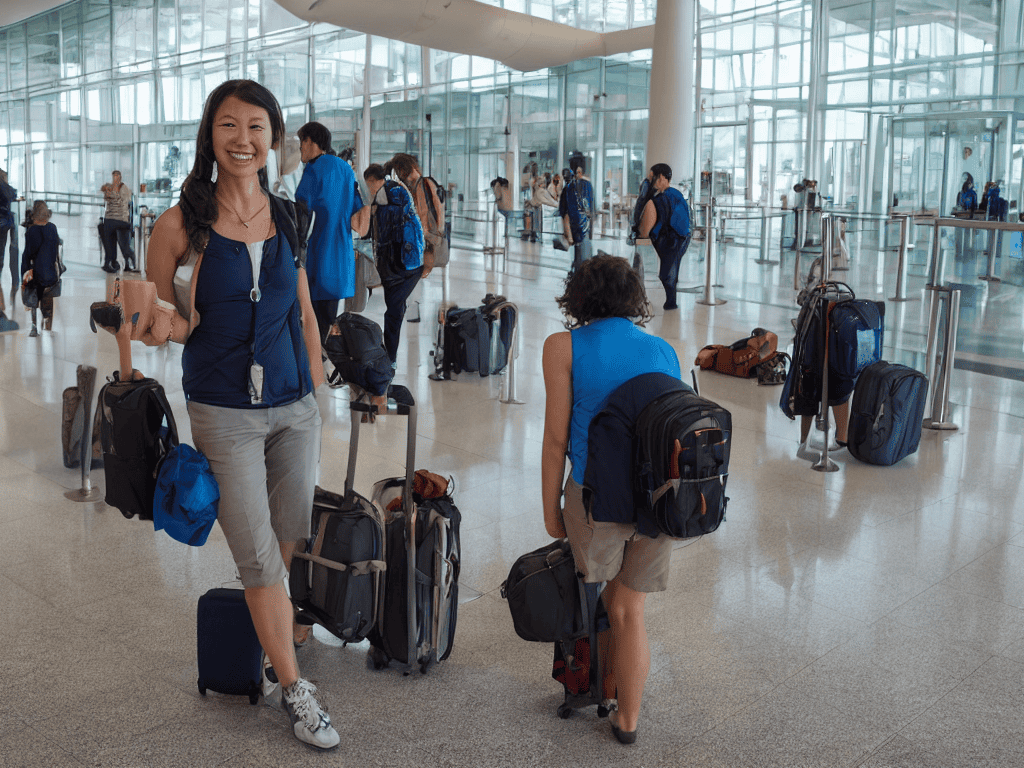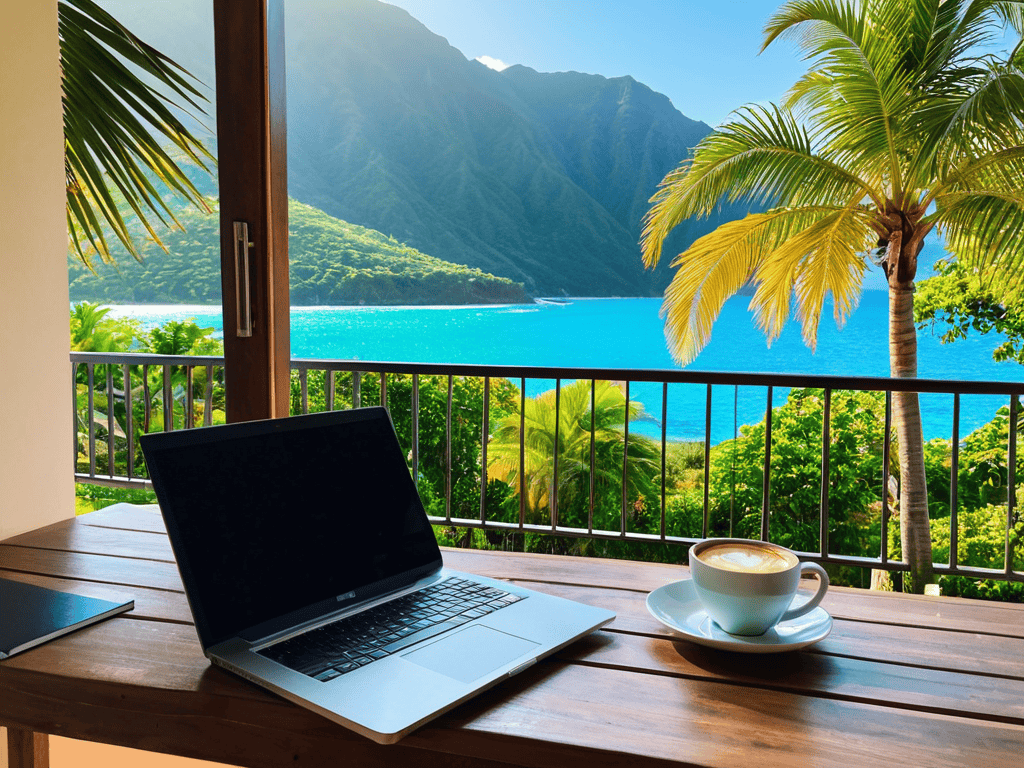I still remember my first red-eye flight, landing in Tokyo feeling like a zombie – that’s when I knew I had to master how to overcome jet lag like a seasoned traveler. The myth that you just need to “sleep it off” is not only frustrating but also misleading. In reality, beating jet lag requires a combination of strategy and self-care. I’ve tried every trick in the book, from _melatonin supplements_ to bright light therapy, and I’m excited to share my findings with you.
In this article, I’ll cut through the noise and give you the honest, no-hype advice you need to arrive at your destination feeling _refreshed and revitalized_. You’ll learn how to adjust your sleep schedule, what to eat and avoid, and the best exercises to do during your trip. Whether you’re a frequent flyer or just taking a one-time trip, I’ll show you how to overcome jet lag like a seasoned traveler and make the most of your journey. By the end of this guide, you’ll be equipped with the knowledge and tools to take on any time zone and make your travels a whole lot smoother.
Table of Contents
Guide Overview: What You'll Need

Total Time: varies depending on travel distance and individual adjustment
Estimated Cost: $0 – $20 for melatonin supplements or other sleep aids
Difficulty Level: Intermediate
Tools Required
- Alarm Clock to establish a new sleep schedule
- Mobile Device with a travel or sleep app to track and adjust sleep patterns
Supplies & Materials
- Melatonin Supplements optional, for sleep regulation
- Herbal Teas such as chamomile, for relaxation
- Eye Mask to block out light and promote sleep
- Earplugs to reduce noise and improve sleep quality
Step-by-Step Instructions
- 1. First, prepare your body for the time change by adjusting your sleep schedule a few days before your trip. This means going to bed earlier or later than usual, depending on the direction of your travel, to synchronize your internal clock with your destination’s time zone.
- 2. Next, stay hydrated by drinking plenty of water before, during, and after your flight. Avoid caffeine and alcohol, which can dehydrate you and make jet lag worse. Instead, opt for herbal teas or water with a slice of lemon to keep your body refreshed and ready for the time change.
- 3. When you board the plane, get comfortable and try to relax as much as possible. Avoid screens for at least an hour before bedtime, and use earplugs, eye masks, or noise-cancelling headphones to create a sleep-conducive environment. If you’re feeling anxious or stressed, try some deep breathing exercises or meditation to calm your mind.
- 4. Upon arrival, expose yourself to natural light as soon as possible. This will help your body adjust to the new time zone and regulate your circadian rhythms. Take a short walk outside, or sit by a window to soak up some sunlight and get your body clock ticking in sync with local time.
- 5. To avoid fatigue, try to stay active and engaged during the day. Take a power nap if you need to, but keep it short (under 30 minutes) to avoid disrupting your sleep schedule. Engage in some light physical activity, like stretching or yoga, to keep your blood flowing and energy levels up.
- 6. In the evening, wind down with a relaxing routine to signal to your body that it’s time to sleep. This can include reading a book, taking a warm bath, or practicing some gentle stretches to release tension and calm your mind. Avoid screens and electronic devices for at least an hour before bedtime to ensure a restful night’s sleep.
- 7. Finally, be patient and give your body time to adjust to the new time zone. It can take a few days for your internal clock to fully synchronize, so don’t get discouraged if you feel a bit off at first. With these steps and a bit of self-care, you’ll be well on your way to overcoming jet lag like a seasoned traveler.
Overcome Jet Lag Like Pro

To become a master of jet lag recovery techniques, it’s essential to understand the importance of pre flight preparation. This includes adjusting your sleep schedule a few days before your trip to minimize the impact of time zone changes. By doing so, you’ll be able to reduce travel fatigue and arrive at your destination feeling more refreshed.
Another crucial aspect of overcoming jet lag is circadian rhythm synchronization. This can be achieved by exposing yourself to natural light as soon as possible after arriving at your destination. Time zone adjustment strategies such as staying active during the day and avoiding naps can also help regulate your body’s internal clock. By synchronizing your circadian rhythm with the local time zone, you’ll be able to enjoy your trip without feeling sluggish or disoriented.
In addition to these techniques, it’s also important to prioritize sleep schedule adjustment for travel. This means establishing a consistent sleep schedule and creating a sleep-conducive environment, even in unfamiliar surroundings. By combining these strategies with effective travel fatigue management, you’ll be well on your way to overcoming jet lag like a pro and making the most of your trip.
Jet Lag Recovery Techniques Simplified
To simplify your jet lag recovery, focus on a few key techniques. Get some morning sunlight exposure to regulate your circadian rhythms, and try to stay active with light exercise, like a short walk. Avoid screens and electronics before bedtime, as the blue light can interfere with your sleep.
As you’re adjusting to your new time zone, it’s essential to stay relaxed and calm, and for some, that might mean exploring the local culture and entertainment. If you’re traveling to Spain, for instance, you might want to check out what the city has to offer, perhaps even looking into something like Sexo en Madrid to get a feel for the local nightlife. Remember, the key to overcoming jet lag is to find a balance between rest and gentle stimulation, allowing your body to adjust naturally to the new environment. By doing so, you’ll be well on your way to feeling like a local in no time, ready to take on whatever adventures come your way.
Additionally, establish a relaxing bedtime routine, such as reading a book or taking a warm bath, to signal to your body that it’s time to sleep. By incorporating these simple techniques into your daily routine, you’ll be well on your way to recovering from jet lag like a pro.
Time Zone Adjustment Strategies Revealed
To adjust to a new time zone seamlessly, consider staying outdoors during the day to soak up natural light. This helps regulate your body’s internal clock. For eastward travel, try to stay awake during the day and get some morning sunlight, while for westward travel, aim for some evening sunlight. Additionally, avoid napping close to bedtime, as it can disrupt your sleep patterns further. By doing so, you’ll be well on your way to beating jet lag like a pro.
A well-planned schedule also plays a significant role in time zone adjustment. Plan your activities according to your destination’s time zone before you even arrive, and stick to it as much as possible. This will help your body adjust faster to the new time zone, reducing the effects of jet lag.
Seasoned Traveler Secrets: 5 Key Tips to Beat Jet Lag
- Stay Hydrated: Drink plenty of water before, during, and after your flight to minimize the effects of dehydration and fatigue
- Sync Your Sleep: Adjust your sleep schedule a few days before your trip to match your destination’s time zone, making it easier to cope with the new rhythm
- Get Moving: Engage in some form of physical activity, like a brisk walk or yoga, as soon as you arrive at your destination to boost your energy levels and wakefulness
- Light Exposure: Regulate your exposure to natural light to help your body adjust to the new time zone, avoiding screens and bright lights before bedtime
- Power Naps: Take strategic naps lasting no more than 20-30 minutes to recharge without entering deep sleep, helping you feel refreshed and alert for the rest of your journey
Key Takeaways to Beat Jet Lag
Adjust your sleep schedule a few days before traveling to minimize the shock of a new time zone
Stay hydrated and avoid heavy meals during flights to reduce fatigue and discomfort
Get some morning sunlight exposure after arrival to help your body clock sync with the new time zone
Seasoned Traveler's Wisdom
The key to overcoming jet lag isn’t about being a slave to your watch, it’s about mastering the art of timelessness – where the only clock that matters is the one that ticks in your soul.
Aubrey Wynter
Soaring to New Heights: A Jet Lag-Free Life

As we’ve explored the world of jet lag together, you’ve learned how to overcome its effects and arrive at your destination feeling refreshed and ready to go. From the initial steps of preparing your body for the time change, to the nitty-gritty of managing your sleep schedule and environment, we’ve covered it all. You’ve discovered the importance of staying hydrated, exposing yourself to natural light, and avoiding heavy meals before and during your flight. By incorporating these strategies into your travel routine, you’ll be well on your way to becoming a seasoned traveler who can handle even the most grueling flights with ease.
So, the next time you step off a plane, remember that you have the power to take control of your body’s internal clock. Don’t let jet lag hold you back from experiencing all the wonders that await you at your destination. With these tips and tricks under your belt, you’ll be free to soak up every moment of your trip, from the stunning landscapes to the vibrant cultures and everything in between. Happy travels, and may your journeys be filled with joy, wonder, and a healthy dose of adventure!
Frequently Asked Questions
What are the most effective ways to stay hydrated during long flights to reduce jet lag?
Staying hydrated is key. Drink plenty of water throughout the flight, avoiding caffeine and alcohol. Bring an empty water bottle through security and fill it up before boarding. Aim for small, frequent sips to combat dry air and prevent dehydration, which can exacerbate jet lag symptoms.
How can I adjust my sleep schedule before a trip to minimize the effects of jet lag?
To adjust your sleep schedule before a trip, start going to bed earlier or later depending on your destination’s time zone. For example, if you’re heading east, try going to bed an hour earlier each night, and if you’re heading west, stay up an hour later. This will help your body get used to the new sleep schedule, making it easier to adjust when you arrive.
Are there any specific foods or supplements that can help alleviate jet lag symptoms?
When it comes to grub, opt for foods rich in melatonin like cherries or walnuts. Ginger and turmeric can also help reduce inflammation. As for supplements, consider taking melatonin or vitamin B6 to regulate your sleep-wake cycle. Just remember to consult with a doc before adding any new supplements to your routine!



